In recent times, the Department of Science and Technology has advised the province to issue documents to implement the tasks assigned by the Central Government quite fully, from supporting the registration of industrial property rights protection, to supporting the development of local specialties and specialties, including OCOP products. Regarding the implementation of the Intellectual Property Development Program in Ca Mau province until 2030 (Decision No. 3055/QD-UBND dated December 31, 2021 of the Chairman of the People's Committee of Ca Mau province), focusing on supporting the registration of collective trademarks, certification trademarks, geographical indications for local specialties and products associated with the OCOP Program; designing a brand identity system, tracing the origin of protected products; deploying and operating e-commerce platforms,...
According to Decision No. 148/QD-TTg of the Prime Minister dated February 24, 2023 on promulgating the set of criteria and procedures for evaluating and classifying products of the One Commune One Product Program, one of the criteria related to the science and technology sector for products proposed for consideration and recognition must meet the requirements of intellectual property, traceability, style, product labeling, etc. In the past time, the Department of Science and Technology has implemented the OCOP Program, focusing on promoting support for the following specific contents:
- Coordinated with units to review entities that have registered intellectual property or granted the right to use trademarks and geographical indications for community assets; guided and supported 04 entities to contact owners and management agencies to be granted the right to use. Advised and guided entities to prepare dossiers for industrial property registration. Supported funding for trademark registration (according to Resolution No. 04/2022/NQ-HDND dated July 13, 2022 of the People's Council of Ca Mau province) for 13 enterprises, cooperatives and establishments with a total amount of 195,000,000 VND.
- Support and guide the design of product labels and packaging for 37 products of 20 entities in a way that attracts consumers and complies with product labeling regulations.
- Regarding traceability: In the period of 2021 - 2024, the Department of Science and Technology has implemented traceability for 96 products of 65 production and business establishments (including 83 OCOP products of 55 entities). This is a demonstration of great concern of the province. Most entities have done well to enhance the reputation and brand of their products, through traceability for promotion.
- Regarding quality management system: In the period of 2022 - 2024, 20 facilities with 47 construction products were supported, applying quality management systems HACCP, ISO 22000:2018, VIETGAP (including 20 facilities with 41 OCOP products).
- In addition, the Provincial People's Committee has advised the Provincial People's Committee to promulgate the Regulation on management of traceability; geographical indications, collective trademarks, and certification trademarks for OCOP products of Ca Mau province; thereby, helping the subjects with OCOP products supported in traceability to properly comply with the requirements when participating in the Traceability System, and at the same time helping the Department of Science and Technology to better manage traceability activities and manage intellectual properties that grant usage rights to subjects.
However, besides positive results, there are still many difficulties and problems, as follows:
- Many organizations, businesses and individuals are still confused, do not understand and have a firm grasp of the process and procedures for establishing the right to register for protection of industrial property rights. The time for registration, application content assessment, and waiting for the issuance of protection certificates is still long.
- Production and business establishments participating in traceability are mainly small and medium enterprises with limited human resources. Business owners have not really invested time in implementing traceability. The cost of printing stamps is limited and most of them still rely on support from state agencies.
- The annual budget allocated for the Program is still low; the commitment of counterpart funds by the subjects is still difficult, so participation is still low.
- Procedures related to scientific and technological tasks such as: supporting businesses in building, applying and certifying quality management systems, financial review and appraisal work with quite a long time, leading to the issuance of certificates not being timely enough for businesses to negotiate with product distribution partners as well as submit applications for recognition of OCOP products.
- Most consulting and certification units for quality management systems compete unfairly (mainly on service price competition, accepting low bids). When the winning unit implements the task, it does not meet the objectives and requirements of the task, causing difficulties for the implementation to businesses.
- Regarding the support for enterprises and cooperatives to apply quality management systems such as ISO, HACCP, etc., which are being implemented in the form of scientific and technological tasks , the application of direct support according to the expenditure levels in Clause 4 and Clause 5, Article 25 of Decree No. 80/2021/ND-CP dated August 26, 2021 of the Government detailing and guiding the implementation of a number of articles of the Law on Support for Small and Medium Enterprises has not yet been allowed, so it takes a lot of time.
- Some OCOP entities, when certified for quality management systems, do not maintain them as committed. Recertification assessment is difficult to meet regulations.
- When participating, entities and businesses are less willing to contribute funding to build and upgrade factories to ensure quality management system criteria, and regularly renovate and upgrade factories to maintain recertification.
In the coming time, the Department of Science and Technology will continue to implement and advise the Provincial People's Committee to implement the following contents:
- Continue to research and promulgate mechanisms and solutions to support and promote the creation of intellectual property, especially for groups of business entities and key, specific product groups, and local OCOP products.
- Strengthen training and coaching on intellectual property and traceability for organizations, businesses and cooperatives in the province.
- Continue to support registration for protection, management and development of intellectual property, control of origin and quality after protection for specific products, specialties and products associated with the OCOP Program in the form of collective trademarks, certification trademarks, and geographical indications.
- Implement and exploit well the community trademarks that are licensed to be used in conjunction with OCOP products of production and business units to enhance the competitiveness and value of the products.
- Continue to support the building and development of brands, geographical indications, traceability, improvement of product packaging designs and styles, and measures to handle violations of industrial property and OCOP product labels.
- Continue to propose and select products to be put on the Provincial Origin Tracing Portal. Expected to be deployed for 12 products in 2025, focusing on OCOP products.
- Continue to implement traceability management , ensuring publicity and transparency of selected products.
- Coordinate with units to connect data with the National Product and Goods Traceability Portal.
- Strengthening capacity and effectiveness of intellectual property rights enforcement; promoting intellectual property rights protection in the digital environment./.
Tran Thi Thuy (Department of Technology Management - Department of Science and Technology of Ca Mau)
Source: https://sokhcn.camau.gov.vn/hoat-dong-cua-so/xay-dung-va-bao-ho-thuong-hieu-san-pham-ocop-de-phat-trien-cac-san-pham-dac-thu-cua-tinh-ca-mau-272017






![[Photo] Solemn opening of the 1st Government Party Congress](https://vphoto.vietnam.vn/thumb/1200x675/vietnam/resource/IMAGE/2025/10/13/1760337945186_ndo_br_img-0787-jpg.webp)







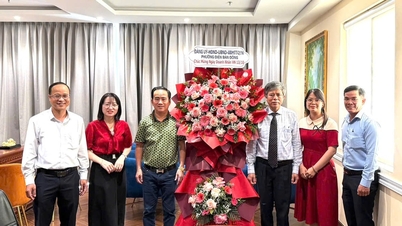



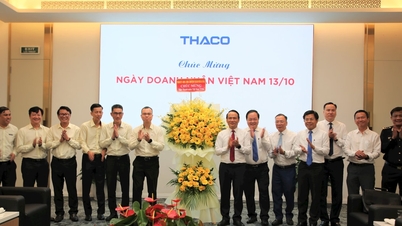




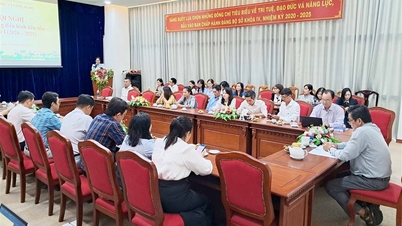


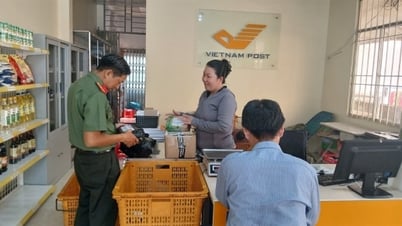
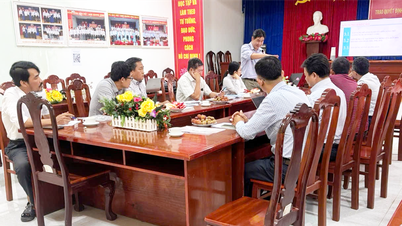
![[Photo] General Secretary To Lam attends the opening of the 1st Government Party Congress](https://vphoto.vietnam.vn/thumb/1200x675/vietnam/resource/IMAGE/2025/10/13/1760321055249_ndo_br_cover-9284-jpg.webp)
































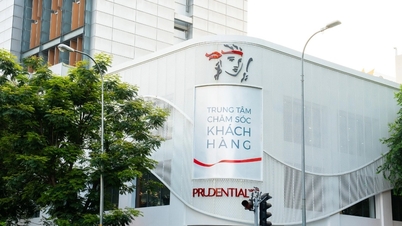





















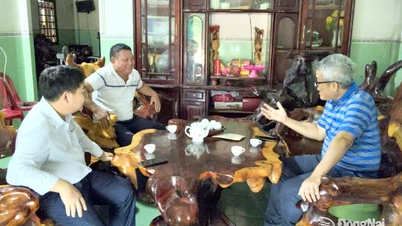



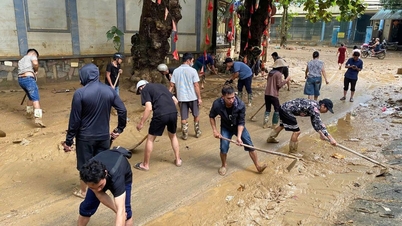





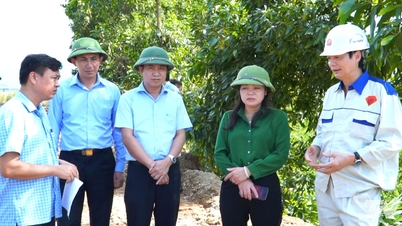















Comment (0)